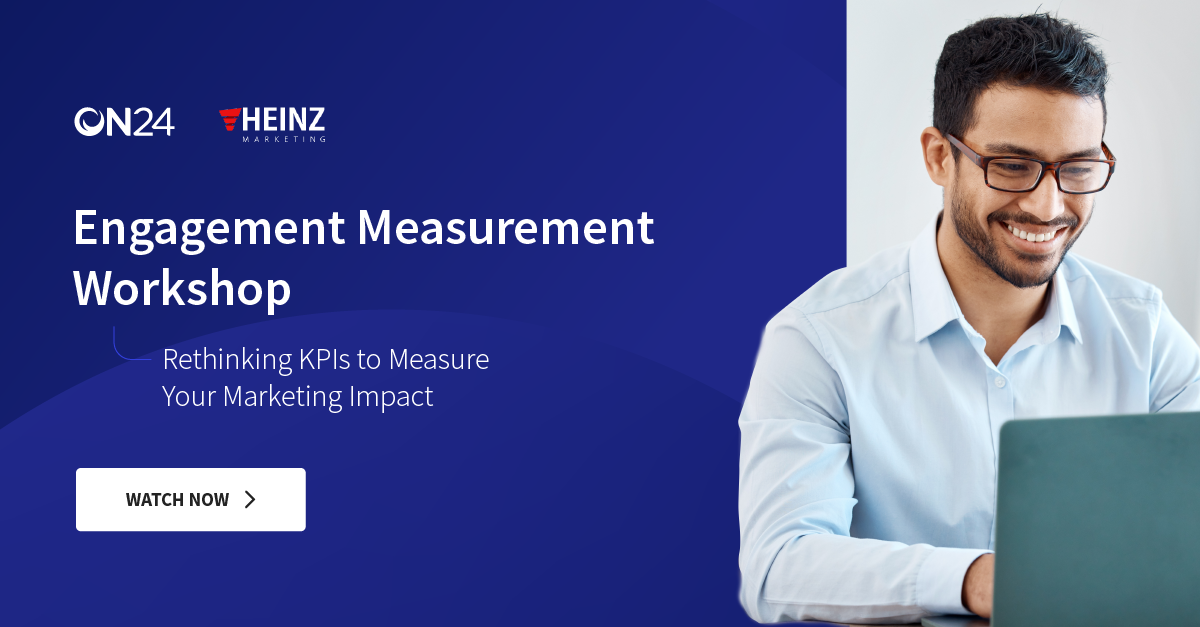Key performance indicators, or KPIs, are the cornerstone of marketing performance measurement. They track the success of marketing campaigns, helping businesses understand whether their strategies are working and how they can be improved.
We’ve put together a list of some of the most important content marketing KPIs to use in 2024. Whether you’re running campaigns to boost brand awareness or generate more sales, these KPIs will make it easier to determine where your strategy is working and falling short.
What Are Content Marketing KPIs?

Content marketing KPIs are metrics used to measure the impact of content marketing efforts. They help businesses determine how successfully their content marketing strategies attract attention, engage audiences and generate conversions or sales.
They are vital to guiding marketers toward activities that contribute to broader business objectives. Choosing the right content marketing KPIs to track is fundamental to building a content marketing strategy.
Types of Content Marketing KPIs

Since content marketing strategies can be geared towards achieving diverse goals, from increasing brand awareness to retaining existing customers, KPIs can be split into four categories.
Brand Awareness KPIs
Brand awareness KPIs measure how effectively content marketing activities increase the marketer’s brand awareness in the target audience.
Engagement KPIs
Engagement KPIs track the audience or customer engagement generated from content marketing efforts, including engagement across multiple channels.
Lead Generation/Sales KPIs
Lead generation or sales KPIs measure performance in the final stages of the buying journey, typically relating to the number of conversions or revenue contributed by content marketing.
Retention KPIs
Retention KPIs track how effectively content marketing efforts retain existing customers or contribute to retention alongside other activities.
Top Content Marketing KPIs To Track

These are some of the most critical content marketing KPIs, including metrics that measure customer engagement, content performance, conversions or sales, and content reach.
Engagement Metrics
Time on Page
Time on page measures how long a user spends on a webpage before moving to another URL or ending their session. It’s often used as an indicator of the quality of the content on the page or its relevance to the user’s intent, and it can provide insights into whether the page needs to be updated to hook users more quickly.
Pages per Session
Pages per session track how many web pages an average user visits during a single session on a website. This can help understand how effectively users are being guided through their journey. Low pages per session indicate that a website needs to provide more (or more relevant) opportunities for content exploration through internal links.
Bounce Rate
Bounce rate measures the percentage of people who exit a website (or ‘bounce’) directly from the page they entered without engaging with an on-page element or following a link to another page. A high bounce rate on a given webpage often indicates that the content has low relevance to user intent, takes too long to load, or isn’t capturing users’ attention quickly enough.
Performance Metrics
Organic Traffic
Organic traffic measures website traffic from search engines like Google or Bing, excluding any traffic from paid search engine advertising. High organic traffic is typically the result of successful search engine optimization (SEO), indicating that content marketing efforts effectively target valuable keywords. Low organic traffic might indicate the opposite.
Keyword Rankings
Keyword rankings track the number of individual keywords a webpage ranks organically on search engines. Typically, however, only rankings in the top 10 positions (i.e., the first page of results) for any keyword will generate organic traffic. Each keyword will also have an average search volume, representing how many times it’s searched each month. Attaining top 10 rankings for keywords with high search volume should be a content marketing priority.
Backlinks
Backlinks are inbound links from one website to another. They act as trust signals, aiding SEO performance and boosting the web pages that the links are pointing toward. They also allow users to hop from one site to another to get more information, which means they can generate traffic for the destination site. Securing backlinks is one of the key objectives of off-site and on-site content marketing.
Conversion Metrics
Conversion Rate
Conversion rate measures the percentage of users who visit a webpage and trigger a conversion action, like submitting a contact form or signing up for a product demo. For conversion-focused content, like content marketing campaign landing pages, a high conversion rate signifies effectiveness, and vice versa.
Lead Generation Metrics
Lead generation metrics are conversions that relate specifically to, well, lead generation, like product demo sign-ups or contact form submissions.
Newsletter Sign-Ups
Newsletter sign-ups are a popular conversion action for businesses interested in building an engaged audience to nurture through content delivered regularly via email.
Content Reach Metrics

Social Shares
Social shares measure how many times a piece of content distributed on a social media platform like LinkedIn, Facebook, or X (formerly Twitter) has been shared by users. Combined with total impressions, social shares are a great indicator of content visibility. Many social shares also indicate that the content resonated with the target audience.
Comments and Interactions
Comments and interactions measure how often users have commented on, liked or saved a piece of content distributed on social media. Like social shares, many comments or interactions imply that the content resonated.
Audience Growth Rate
Audience growth rate (AGR) indicates how rapidly a business’s online audience grows, typically measured over a specific period. High AGR indicates successful content marketing efforts resulting in a growing audience.
How To Identify the Correct KPIs for Your Content Strategy

Not all content marketing KPIs are relevant to every strategy or business. Choosing the right ones to track is essential to ensuring that you’re measuring your content marketing performance in a way that relates to your overall business objectives.
If your objective is to increase revenue and your content marketing campaign is designed to increase signups for your product, content reach metrics might need to be revised.
Instead, you’d want to track KPIs that provide insights into how your content marketing efforts influence your audience throughout the buying journey. This might involve focusing on engagement and conversion metrics, like time on page and conversion rate.
Remember that you don’t have to use the same KPIs for every different type of content or distribution channel used in your content marketing strategy. You could use content reach metrics to understand how effectively your social content is resonating with your audience, for instance, alongside performance metrics to track if your SEO content is succeeding on organic search engines.
Depending on the scale of your content marketing campaign and the number of KPIs you actively track, using dedicated analytics tools can make it easier to stay on top of performance across all channels.
Use ON24 Insights for Content Strategy Optimization

Performance analytics capabilities powered by the ON24 Intelligent Engagement Platform, offering automated, cross-channel insights, have helped diverse businesses improve their approach to content marketing.
For example, Invesco increased its leads by 300% by using ON24 to host its digital events. The company collected insights from attendees to use in its lead-scoring model and inspire follow-up approaches.
Another enterprise technology provider drove $25M in pipeline with ON24, using data collected through the webinar hosting platform to build personalized landing pages for key customer segments and feed engagement data to the sales team.
Best Practices for Monitoring and Improving Content Marketing KPIs

Choosing and tracking KPIs is only helpful if you learn from them. The best way to improve performance over the long term is to pay close attention to what the data tells you and adjust your content marketing campaign accordingly.
Schedule a regular performance review of your campaign, during which you analyze data across your campaign content spanning each distribution channel you’ve used. Focus on where your campaign is performing best and worst — this will help you understand which types of content are most successful with your audience and which types you can cut.
And if your KPIs aren’t giving you enough information to work with, leaving you confused about how your content marketing campaign is performing, Don’t be afraid to tweak them — adaptability is one of the most underrated content marketing tips for long-term growth.
Adding additional KPIs that measure performance elements you feel you lack visibility over and removing those that feel redundant will make tracking your campaign’s successes and failures easier.
Content marketing can improve business performance in key areas like brand awareness or lead generation. Tracking the right KPIs makes managing it much easier. It provides critical insights to inform strategy and gradually improve results.
If you want to maximize your content marketing strategy data, contact us to learn how to use ON24 to power automated cross-channel content performance insights.


